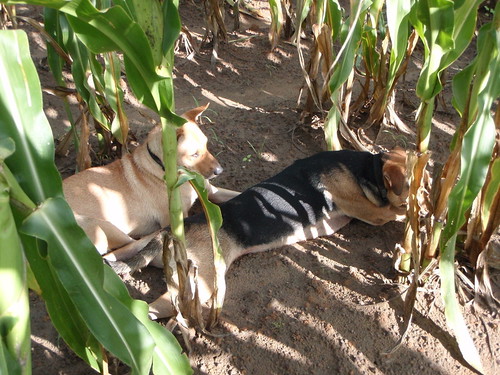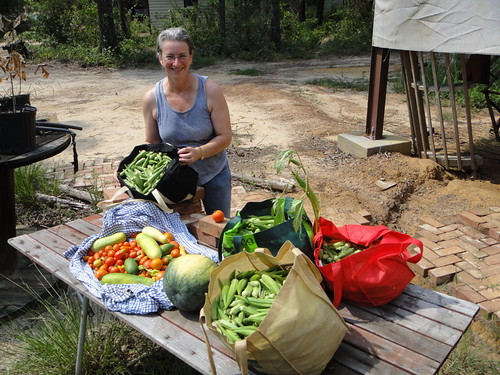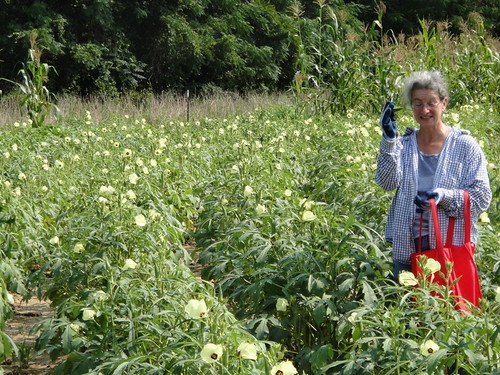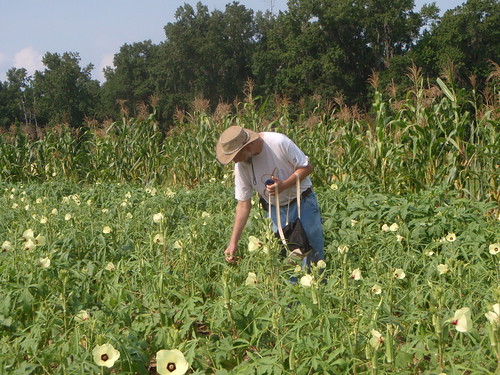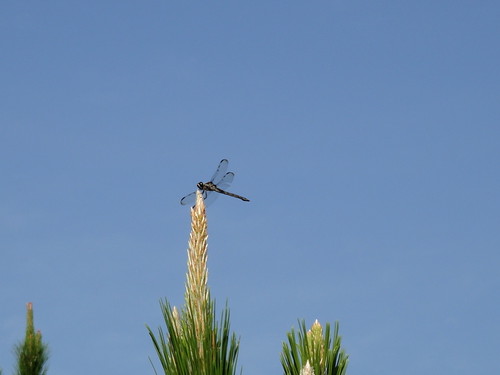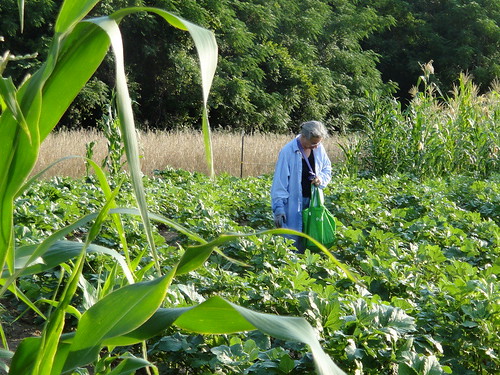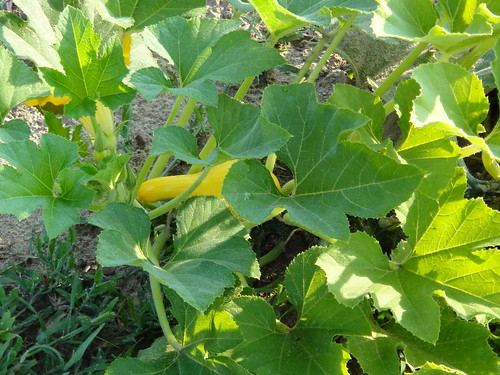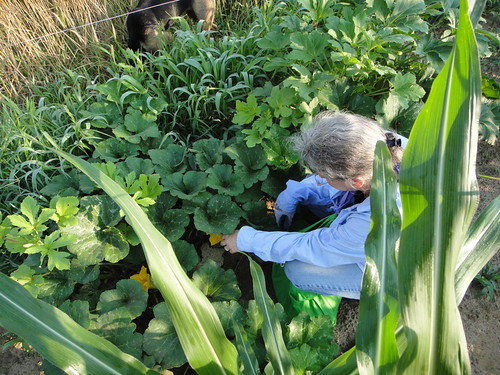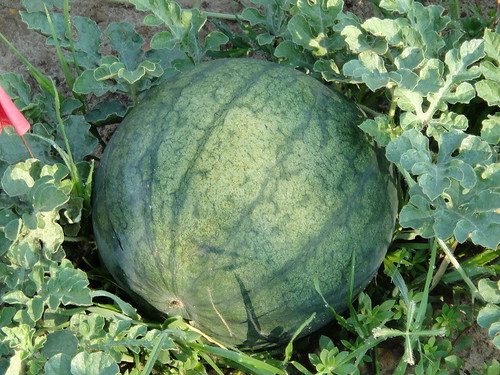Chuck Darwin was right!
Glysophate is losing to mutant weeds.
Gus Lubin wrote in Business Insider 9 June 2011,
Dramatic Proliferation Of Herbicide-Resistant Weeds Threatens U.S. Crops
 Researchers at Iowa State University warn that herbicide-resistant weeds
are proliferating and may jeopardize U.S. food supply.
Researchers at Iowa State University warn that herbicide-resistant weeds
are proliferating and may jeopardize U.S. food supply.
In an article published in Journal of Agricultural and Food Chemistry,
weed scientist Michael Owen said the proliferation of superweed “has
been fairly dramatic in the last two to three years.”
Weeds are developing resistance to glyphosate, the active ingredient in
Roundup, which has been used extensively since 1996.
U.S. soybean, cotton and corn production could suffer from further
proliferation, according to
Science News:
“Today, 98 percent of U.S. soybeans, 88 percent or so of U.S. cotton
and more than 70 percent of U.S. corn come from cultivars resistant
to glyphosate,” Owen reports. Reliance on these crops — and an
accompanying weed-control strategy that employs glyphosate to the
exclusion of other herbicides — “created the ‘perfect storm’ for
weeds to evolve resistance,” Owen and Jerry Green of Pioneer Hi-Bred
International in Newark, Del., argue in their new analysis.
Oh, you mean like this
pigweed-infested cotton from last year?
The Palmer amaranth is already just as bad this year.
It’s not like this is news.
We’ve been going on about it
Continue reading →
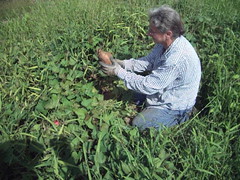 “Look at that!”
We planted them back in March.
“Look at that!”
We planted them back in March.
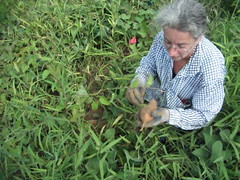 “Like an earthquake!”
When they get ready, they crack the ground.
“Like an earthquake!”
When they get ready, they crack the ground.
